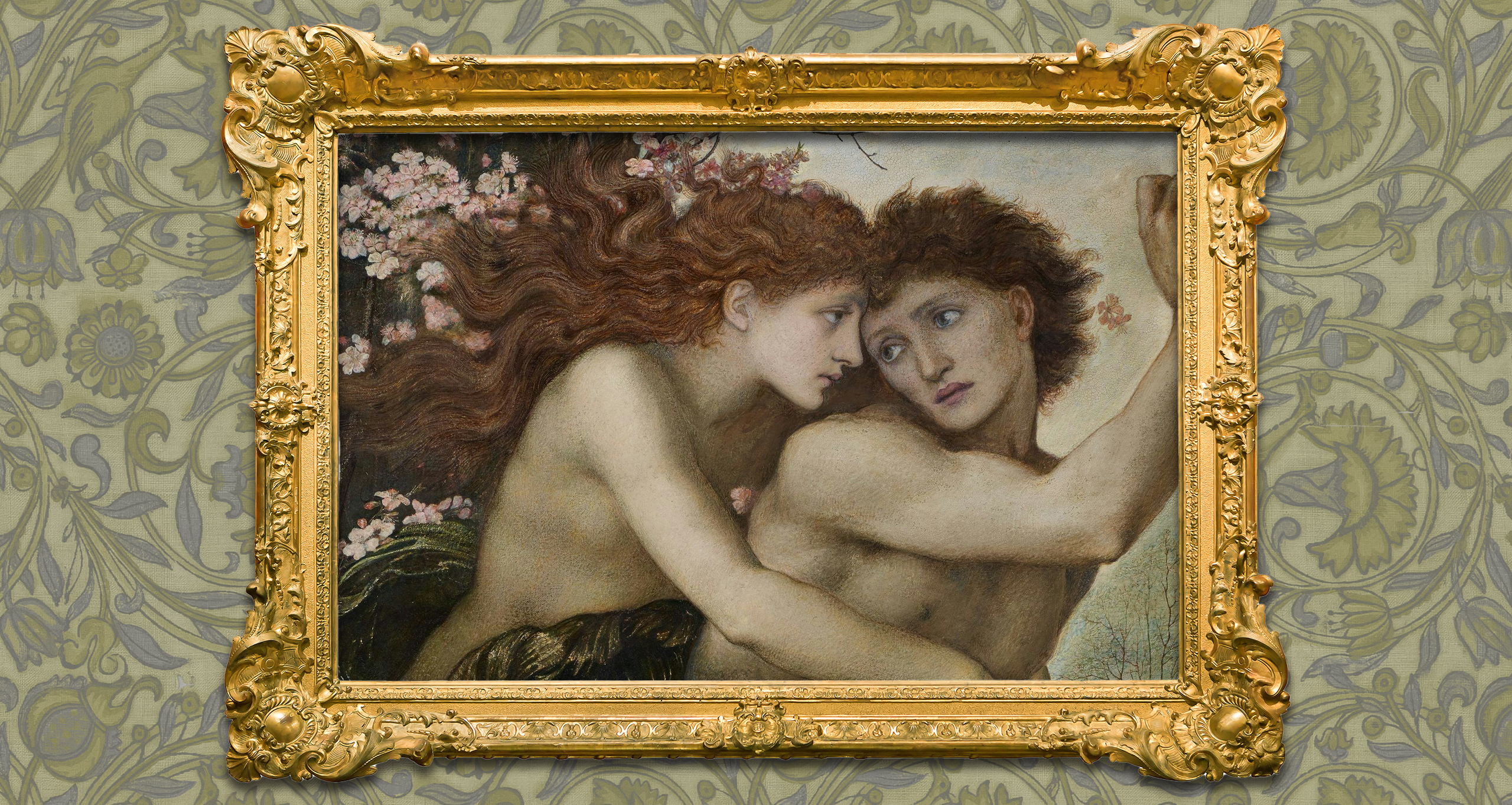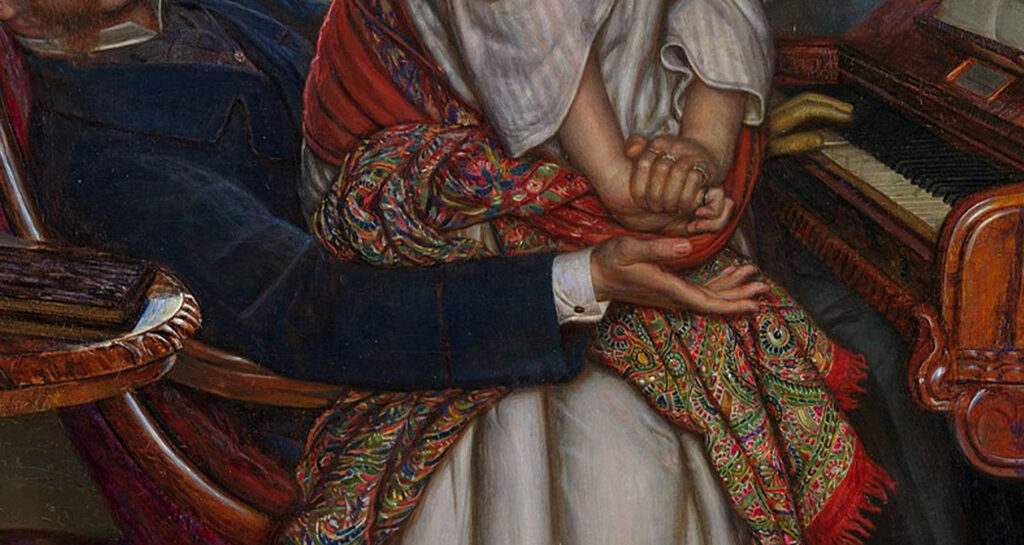We’ve become lousy lovers. Here’s how we can fix it.
Published on September 10, 2025

Lousy at love? Somewhere along the way, we started treating love like a customer service transaction.
If a person no longer “sparks joy,” we cut them off like a subscription service. If a relationship feels uncomfortable, we ghost. If marriage starts to feel more like work than romance, we wonder if we “outgrew” each other. One mild inconvenience, and it’s “this isn’t aligned anymore.”
But here’s the question no one wants to ask: Are we really surrounded by bad relationships or have we just become bad at love?

A culture of self over sacrifice
Modern love is drenched in personal development language: alignment, energy, self-care, boundaries. None of these things is inherently bad. But when they become shields that protect us from the emotional labor love requires, we end up prioritizing our own comfort over connection.
We walk into relationships asking, “What will I get?” instead of “What can I give?”
It’s consumerism in disguise. We treat people like products. If the spark fades, we cancel the subscription. If they don’t meet our ever-changing list of green flags, we send them back like a misdelivered Amazon package. We keep demanding loyalty but avoid commitment by leaving a foot outside of the relationship “just in case,” as if that was the responsible thing.
We live in a paradox: We crave emotional intimacy, yet flinch the moment it requires real vulnerability. We want passion that’s cinematic and electric—but not the kind that asks for patience, presence, or sacrifice. Somewhere along the way, in trying to protect our hearts, we stopped showing up fully. We became cautious investors in something that only thrives with total commitment. And love, stripped of risk and mystery, has quietly withered under our fear.

The dating market is not broken, we are
It’s easy to blame the dating market. “There are no good men.” “Modern women aren’t feminine enough.” “Everyone just wants validation.” But here’s the truth that no one wants to post on their social media feeds: We’ve brought our own self-centeredness into the dating market.
We’ve started treating love like a job search. Scanning for flaws, exiting at the first sign of discomfort, and expecting instant compatibility without the growing pains. Dates feel more like interviews than moments of connection, where vulnerability is replaced with performance. We obsess over red flags but forget that real healing is messy, nonlinear, and rarely Instagram-ready. We swipe away anyone who doesn’t spark perfection on contact, then wonder why nothing lasts. The truth is, we’ve built walls so high around our hearts that even the good ones can’t get in.
Maybe it’s not that love is dead. Maybe it’s that we’ve stopped knowing how to love.
And sometimes, in the quiet ache of wanting to love well, empathetic people overextend. They give and give, offering patience, understanding, and emotional labor, believing that this is what love is meant to look like. But love isn’t one-sided sacrifice. It’s not about proving your worth to someone unwilling to meet you halfway. There is beauty in reciprocity, in mutual care, in a dynamic where both hearts are open and generous. Without that, what we call love might just be a habit of self-abandonment wrapped in good intentions.

What happens when we give up too early
The problem isn’t just in dating. It’s bleeding into marriage, too.
We see partners as vehicles for happiness – and when they stop performing, we start looking for the exit. But anyone who’s ever been through a real season of commitment knows: love is not always exciting. Sometimes, it’s endurance. And while this may initially sound grim, beauty and romance always follow endurance.
Love won’t always come with butterflies, shared opinions, or perfect chemistry, and that’s not a flaw; it’s the foundation. Disagreement and tension aren’t signs you’ve chosen wrong; they’re invitations to grow, stretch, and deepen. We’ve been taught that ease equals alignment, but real connection is forged in the hard, holy work of staying. Walking away at the first bump may feel like empowerment, but often it’s just fear dressed up as self-respect. Maturity means learning to stay, not out of obligation, but because love is worth the effort.
Yes, there are legitimate reasons to end a relationship. But not every rough patch is a red flag. Sometimes, it’s just life.

Five ways we’ve become lousy lovers
Let’s name it. Here’s how our love has gone off-course:
- We walk away when feelings fade.
We mistake chemistry for connection, and assume the absence of butterflies means the absence of love. But real love is chosen, not felt. - We expect happiness to be delivered to us.
Instead of co-creating peace, we put the entire burden on our partner: Make me feel secure. Heal me. Read my mind. - We treat people like projects or placeholders.
Either we want to fix them, or we treat them like emotional vending machines until we find someone “better.” - We fear being “used,” so we never give freely.
We enter love with a calculator. We give only when we get. We measure, we audit, we protect. But we never surrender. - We ghost instead of grow.
We avoid hard conversations. We don’t want the awkward moment, the apology, the tension. So we vanish. And call it “closure.”

What it actually takes to love well
There is hope, but it starts with each of us. Here’s how we can begin:
1. Practice emotional generosity
Give more than you calculate. Send the text. Offer the apology. Do the inconvenient thing. Love lavishly, not transactionally.
2. Distinguish between toxic and tough
Not every fight means incompatibility. Not every disagreement is trauma. Some storms are just part of building a home together.
3. Get better at small sacrifices
Carry their bag. Cook dinner. Listen when you’re tired. It’s not glamorous, but it builds the glue.
4. Be willing to be inconvenienced
Love disrupts your plans. It interrupts your schedule. It asks you to be available when you’re busy, to be soft when you’re exhausted. If you’re only willing to love when it’s convenient, you’re not ready for love at all.
5. Stop expecting a therapist
Your partner is not your emotional crutch. They can support you, but they cannot solve you. Heal yourself, so you can share life, not dump it on someone else, and grade their reaction.

Love is not a transaction. It’s a transformation.
The truth is, relationships are not meant to be perfect. They’re meant to refine us. They show us where we’re selfish. Where we’re impatient. Where we still need to grow.
Love isn’t about finding the most flawless person. It’s about becoming the kind of person who can build something lasting with another imperfect human. And when we get that right, love doesn’t feel like a fairy tale, it feels much better than that. It feels like home, like safety, like the most valuable treasure.

It’s time to believe in love again
We’re not broken beyond repair. But we need to admit we’ve gotten it wrong. Love is not a hobby, a dopamine hit, or a personal brand. It’s not a highlight reel or a checklist.
It’s a practice.
Like anything sacred, love won’t bloom without time, presence, effort, and the kind of patience our culture has forgotten how to value. So let’s choose to be braver than what’s expected of us. Let’s forgive faster, stay longer, and listen with the kind of tenderness that makes love feel safe again. Not just when it’s easy, but especially when it’s hard, when it counts, when it matters most. Because what we really need isn’t another dating hack or breakup script, we need more courage and better hearts.
Not to be “chosen” but to choose again and again and again.




Amazing piece; really great literary talent, I wonder how long this took you to write? I think that you have been ‘around the block’ a few times.
Great article Johanna!
Remarkably well composed essay and the premise so very true
This is a great article and reminder that we with God’s help can be the change we need or seek in our romantic relationship. To choose to be all in! I’ve been married 15 years and I love getting to choose my wonderful husband each day!
Four positive comments, all from women. Hmmm.
Most men have either been shown the door by a woman in the driver’s seat of the relationship, or watched their father’s receive the same treatment.
Many of us have left, and aren’t coming back just to have Lucy yank out the football, again.
When you look for the missing men, ask the fish for help. The man will be right next to the fish’s bicycle.
“Most” men? Methinks that’s hyperbolic assertion from a guy bitter about rejection.
Go to the gym. Further your career training. Find some new passions. Get more sunshine.
Pray and grow your primary relationship, with your Creator. No one wants to marry a bitter misogynist only looking to dominate a woman in marriage.
Blaming, not listening.
Perhaps reinforcing my point…
Exceptionally well written, exuding love and tenderness which I believe evokes a bit of sadness in all of us. Why? Well, being honest, I know that I am certainly guilty of this behavior. Love takes a lot of work, and vulnerability can be very scary, but I personally know of no other way, that elusive depth of feeling loved we ALL crave will be achieved.
Enjoyed reading this article very much. It all rings true as to how things are now. Definitely makes one stop and think about life and love. Seems in many ways now we look at negatives and glance at positives. Thank you for sharing your insights.
lramirez@fortmyer.com
Fascinating
Let me in
All I know is I was forced out with no reasoning or why.there’s no communication want acnolege my texts .changed to another number .I can’t let it go cause I have no closer .I have no one to talk for me and the longer I’m out of the picture the easier of is for .her.its driving me nuts.she still has most of my things.I can’t get .its like she’s holding on to something and not letting go I’m going insane.